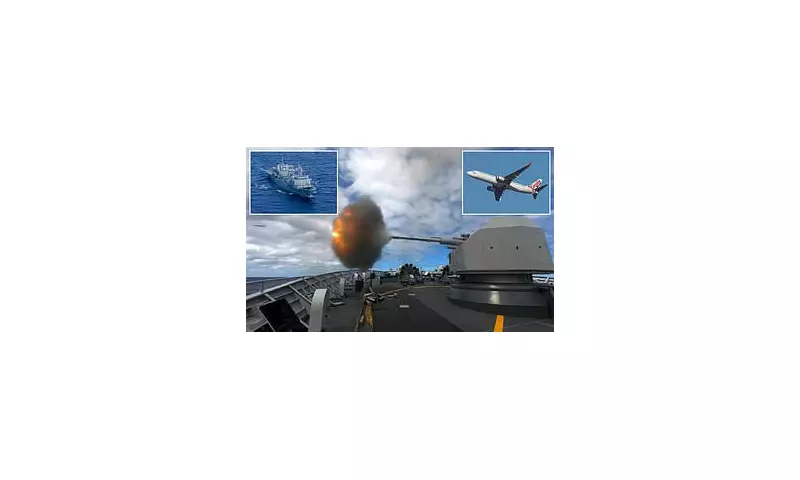
A routine domestic flight in Australia turned into a scene of high-altitude tension after its pilots were warned of dangerous military activity directly on their flight path.
The Virgin Australia Boeing 737-800, operating as VA-148, was en route from Perth to Adelaide on Tuesday when it received a startling communication. An automated voice message from an unknown source warned the crew of 'live fire exercises' in the airspace ahead, prompting immediate action.
According to aviation experts and the audio recording of the exchange, the warning was issued in English but is believed to have originated from the Chinese military. The incident occurred near the contentious South China Sea region, a known hotspot for geopolitical friction.
'We are going to be turning around'
The cockpit audio captures the moment the pilots processed the alarming alert. One pilot is heard confirming the instruction: "We are going to be turning around. We've got a warning from the Chinese military... live fire exercises below us."
The aircraft, carrying 142 passengers, promptly executed a U-turn, diverting from its planned course to ensure safety. The flight later landed safely in Adelaide after taking a longer, alternative route.
Official Responses and mounting concerns
Virgin Australia has confirmed the incident, stating the alteration to the flight path was made "in line with standard operational procedures" to prioritise passenger safety. The Australian Department of Defence has also acknowledged the event and is conducting its own investigation.
This unsettling encounter has raised serious questions among aviation security analysts. The broadcasting of such a warning on an international frequency used by civilian aircraft is highly unusual and is being viewed as a significant breach of standard aviation protocols.
Experts suggest the incident underscores the escalating tensions and potential for miscalculation in the region, highlighting how geopolitical strife can directly impact international civilian travel.





